Vegan leather has emerged, and animal-friendly products have become popular! Although handbags, shoes and accessories made of genuine leather (animal leather) have always been very popular, the production of each genuine leather product means that an animal has been killed. As more and more people advocate the theme of animal-friendly, many brands have begun to study substitutes for genuine leather. In addition to the faux leather we know, there is now a term called vegan leather. Vegan leather is like flesh, not real meat. This kind of leather has become popular in recent years. Veganism means animal-friendly leather. The manufacturing materials and production process of these leathers are 100% free of animal ingredients and animal footprints (such as animal testing). Such leather can be called vegan leather, and some people also call vegan leather plant leather. Vegan leather is a new type of environmentally friendly synthetic leather. It not only has a longer service life, but its production process can also be controlled to be completely non-toxic and reduce waste and wastewater. This kind of leather not only represents an increase in people's awareness of animal protection, but also reflects that today's technological development is constantly promoting and supporting the development of our fashion industry. Do people recognize what is in the jar below?
 ▲Image from: Unsplash
▲Image from: Unsplash
Yes, it is apple juice. So where does the remaining residue go after the apples are squeezed? Turn it into kitchen waste? No, these apple residues have other places to go, they can also be turned into shoes and bags. Apple pomace is a "leather" raw material that has been put in the wrong place Shoes and bags are still made of animal skins? The pattern is open! Many plant-based raw materials have gradually emerged for making leather, which are also called Vegan Leather.
Vegan Leather refers to leather products that are 100% free of animal ingredients and animal footprints in the manufacturing materials and production process, and do not conduct any animal testing.
In the current market, there are leather products made of grapes, pineapples, and mushrooms...
Especially mushrooms, in addition to being eaten, they have been developing rapidly in other industries in the past two years. Big brands such as lululemon, Hermes and Adidas have launched "mushroom leather" products made from the "mycelium" of mushrooms.

Hermes' Mushroom Bag, photo courtesy of Robb Report
In addition to these plants, as a by-product of the apple juice industry, "apple leather" made from apple residues such as cores and peels that are not needed for making juice has gradually become a "dark horse" in Vegan Leather.
Brands such as Sylven New York, SAMARA and Good Guys Don’t Wear Leather have apple leather products, called "Apple Leather" or "AppleSkin".
They gradually use apple leather as one of their main materials.
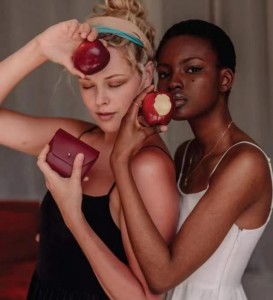
Image from: SAMARA
Industrial-scale apple juice production leaves a paste-like pulp (composed of cellulose fibers) after the apples are squeezed.
These brands convert the residues such as cores and peels produced during apple juice production from Europe (mostly from Italy) into pulp, which is then mixed with organic solvents and polyurethane and bonded to fabric to make leather-like fabrics.
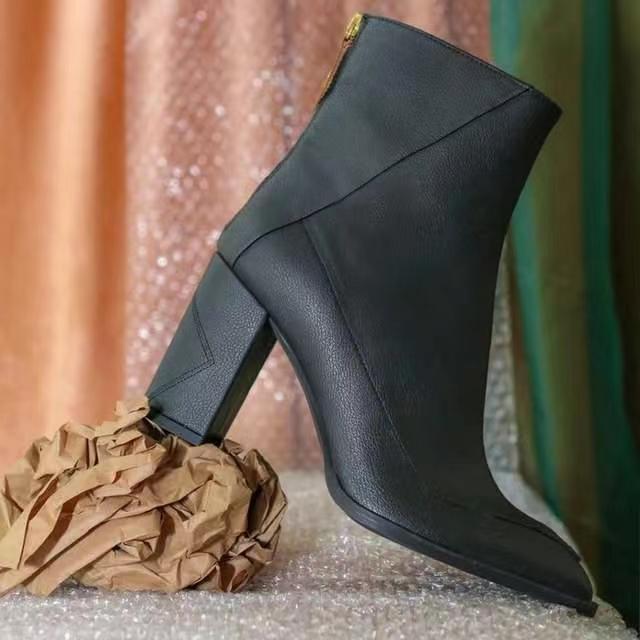
Image from: Sylven New York
Structurally, "apple leather" has many of the same properties as animal leather, but its production process has nothing to do with animals, and it has other small advantages that plant-based leather does not have.
For example, it has an excellent feel that is closer to real leather.
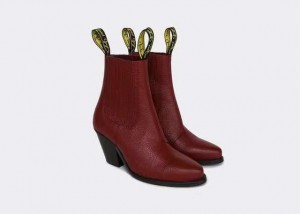
Image from: Good Guys Don’t Wear Leather
SAMARA founder Salima Visram works with a factory in Europe to produce apple leather for her bag series.
According to Salima's experiments, naturally thick apple leather is particularly suitable for making bags and shoes.
Mushroom leather, which has been popular in recent years, can adjust the quality of the finished product such as weight or feel by controlling the growth method of mushrooms, and mushrooms, which can be quickly regenerated, are a raw material that is easier to obtain than apple by products.

Image from: Samara
However, mushroom leather has a slightly different texture, and not all designers like it.
Salima said: "We tried mushroom leather, pineapple leather and coconut leather, but it didn't have the feel we wanted."
Some people say that garbage is a resource that is placed in the wrong place.
In this way, apple residues that may become kitchen waste are also "leather" raw materials that are placed in the wrong place.
What kind of leather should we use? From apple residues to shoes and bags, what has leather experienced over the years?
As we all know, people have a long history of using leather, and most of them use animal leather.
But with the progress of society and the development of civilization, protecting animal rights, environmental protection, sustainability... various reasons have led more and more people to reduce the use of or even stop using animal leather products.
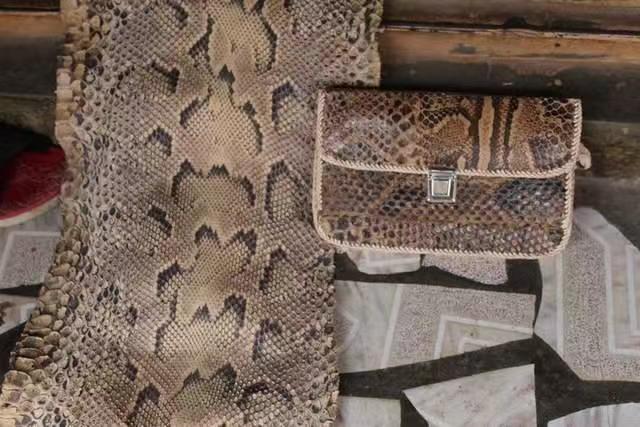
Image from: Eco Warrior Princess
Therefore, another industry has also been developed - Vegan Leather.
As mentioned earlier, Vegan Leather is 100% free of animal ingredients and animal footprints in its manufacturing materials and production process, and does not conduct any animal testing.
In short, it is an animal-friendly leather.
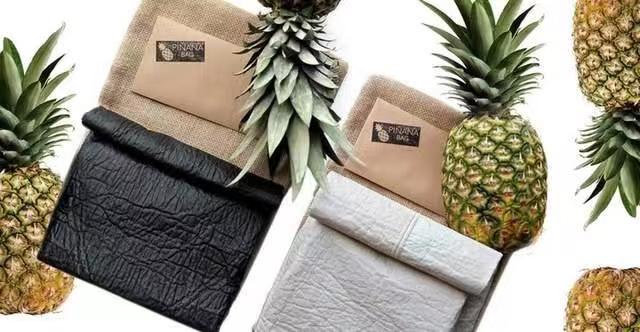
Image from: Green Matters
However, being animal-friendly does not mean being environmentally friendly.
Common artificial leathers such as PVC and PU can also be considered Vegan Leather in a broad sense (there are indeed no animals involved in the production process), but their raw materials come from petroleum, and the production process will also produce many substances that are harmful to the environment.
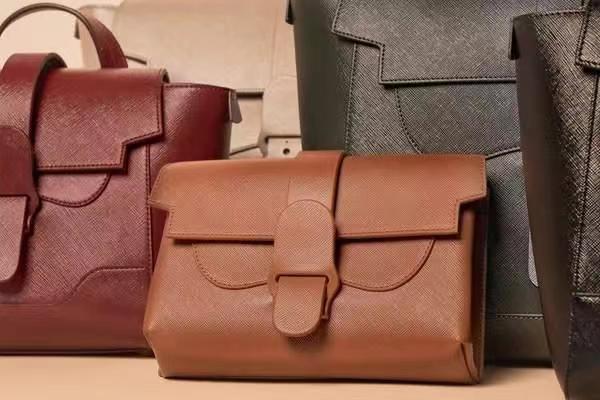
Image from: Senreve
We can avoid animal leather, but we can't go to the other extreme.
Is there no way to be both environmentally friendly and animal-friendly while still meeting people's demand for leather?
Of course there is a way, which is to make leather from plants that are more environmentally friendly. So far, the results are pretty good.
But the birth of every new thing is often not too smooth, and the same is true for plant-based leather. Mushroom leather has a fast growth cycle and controllable quality, but it doesn't feel as good as apple leather.
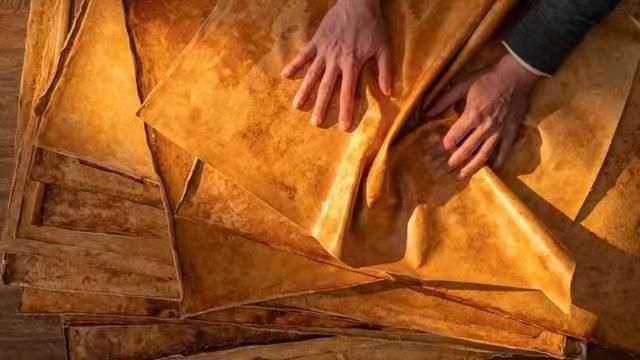
Image from: MycoWorks
What about the superior feel of apple leather? Does it only have advantages? Not necessarily.
Apple leather faces many difficulties in its rise For the apple juice manufacturing industry, these apple residues are waste, and a lot of resources are wasted every year.
Apple leather is also a secondary use of apple residues to make bio-based leather substitutes.
However, it may not be as environmentally friendly as people think.
Take Sylven New York's apple leather sneakers for example. In addition to apple leather, there are linings made from wheat and corn byproducts, soles made from corn husks and sap, and organic cotton shoelaces.
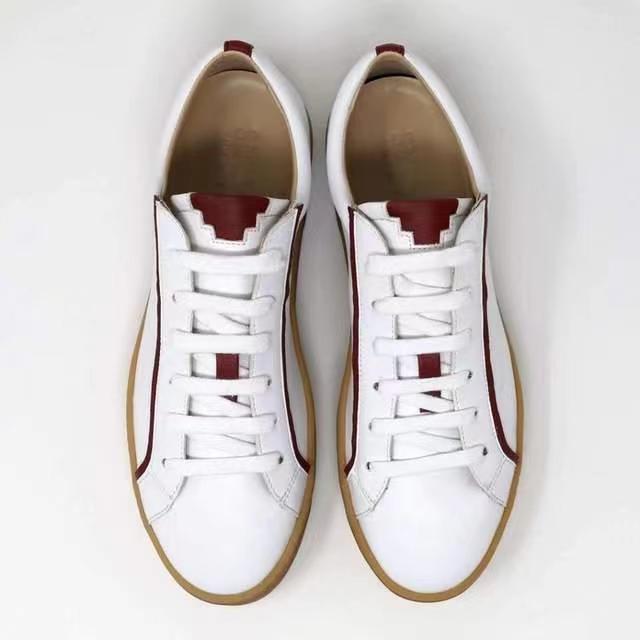
Image from: Sylven New York
In addition to these organic ingredients, Apple Leather shoes also contain 50% polyurethane (PU), after all, shoes also need a fabric backing to support the weight of the body.
In other words, in today's production process, it is still inevitable to use chemicals.
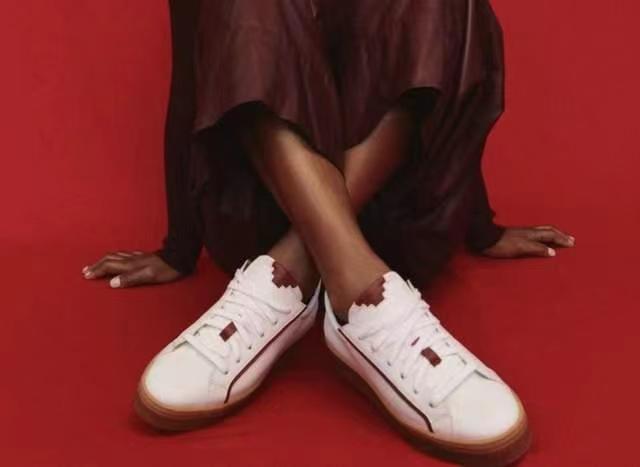
Image from: Sylven New York
With the current production process, only about 20-30% of the materials in Apple leather products are apples.
And how much pollution will be generated during the production process is also unknown.
There is a paragraph on the official website of the Good Guys Don’t Wear Leather brand:
AppleSkin material is produced by recycling this waste that would otherwise be discarded and converting it into final material. The exact process is a trade secret, but we know that cellulose effectively "fills" the amount of virgin material required to make AppleSkin. Fewer virgin materials means fewer natural resources mined from the earth, lower emissions, and lower energy consumption throughout the supply chain.
It can be seen that pollution in the production process is still an unavoidable problem.
However, there are more obstacles to the rise of "Apple Leather".
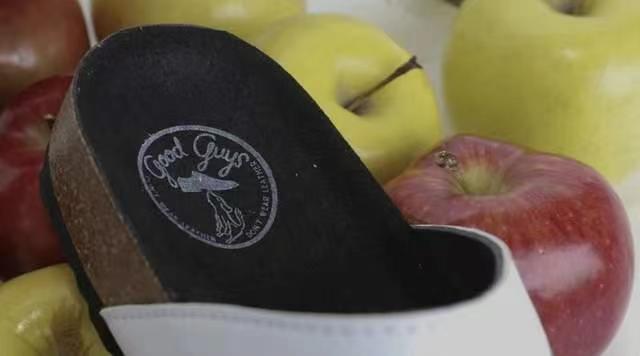
Image from: Good Guys Don’t Wear Leather
Brands that have apple leather products are almost unable to fulfill large orders because there is not enough raw material.
Most of the apple byproducts currently purchased come from Europe because the recycling infrastructure there can better handle food waste. In addition, the factories can only produce a limited amount and have fewer dyes to choose from.
As the saying goes, "A good cook cannot cook without rice." Without raw materials, where will the bags come from?
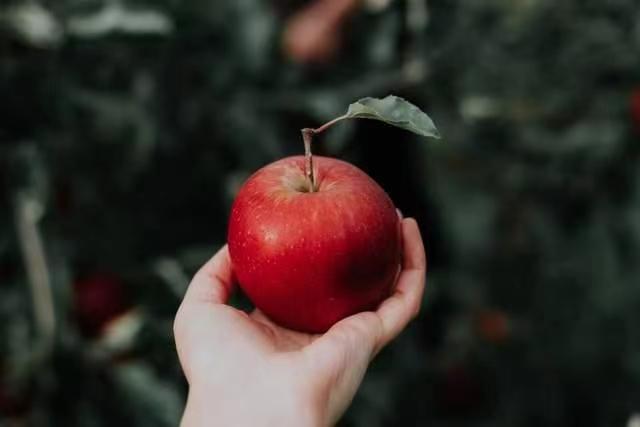
Image from: Unsplash
Production is limited, which usually means higher costs.
Currently, products made from Apple leather are usually more expensive than non-Apple leather products.
For example, the production cost of SAMARA Apple leather bags is 20-30% higher than other vegan leather products (the consumer price can even be up to twice the latter).
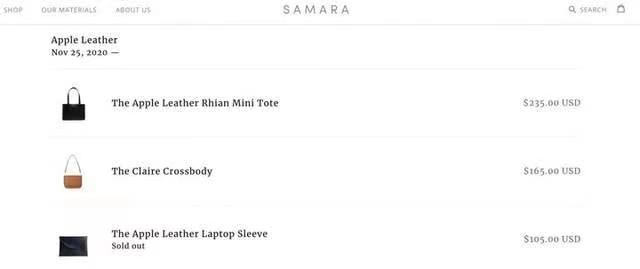
Image from: SAMARA
Ashley Kubley, director of the Fashion Technology Center at the University of Cincinnati, said: "Ninety-nine percent of genuine leather is made from byproducts of the food industry. It's a symbiotic relationship. To this end, many meat processing plants have tanneries on site to integrate the process, and this relationship saves an estimated 7.3 million tons of biowaste from landfills each year."
That said, if Apple wants to produce leather products on a large scale, the industry must also change.
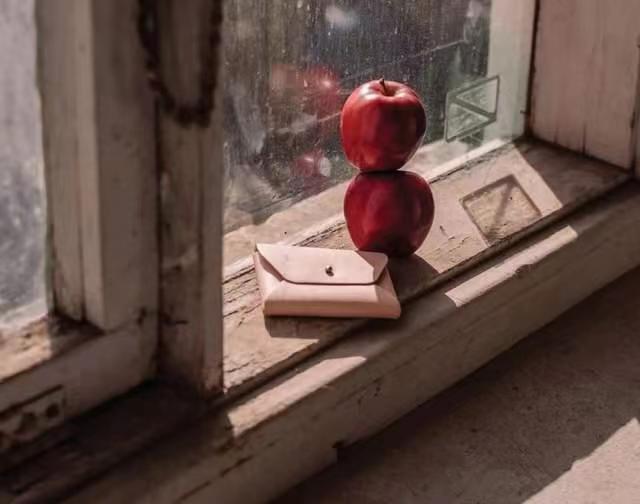
Image from: SAMARA
As an industrial product, Apple Leather is an ideal compromise between environmental friendliness and animal friendliness.
But as a new thing, if it wants to grow and develop, there are also problems that need to be solved urgently.
Although Apple Leather is not perfect at present, it represents a new possibility: high-quality leather products and environmental sustainability may be achieved at the same time.
Media Contact
Company Name: DongGuan QianSin Leather Co., Ltd.
Email: Send Email
Country: China
Website: https://www.qiansin.com/




